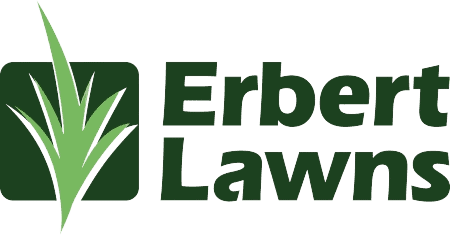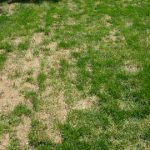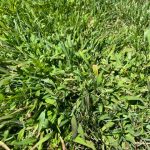In 2019 some very serious lawsuits were brought against Monsanto Roundup, also known as glyphosate. Glyphosate in a broad spectrum weed killer. These lawsuits have brought to light this chemical could cause cancer. It’s been in many headlines. Hearing the big “C” word is scary. This has led people to seek out products described as “natural” or “synthetic free.” Some even attempt the DIY route for “organic” lawn care.
Dish Soap
Insects, like grubs, chinch bugs, and mites can wreak havoc on your lawn. There are many insecticides available to keep your lawn pest free. But the natural minded people have opted to use dish soap to control insects in their lawn. Does it work? When dish soap is applied directly to an insect it will suffocate and die. While killing the insects, dish soap will also leave behind dyes, phosphates, and sometimes even bleach. These ingredients are not actually organic or natural at all and can be toxic to your lawn. Since this method requires direct application, it can not be used preemptively. Once you see the pests in your lawn it is often too late and damage has already been done to your lawn.
Beer
This is one that makes us scratch our heads. The average beer is anything but “natural” and “organic.” Carbonation, carbohydrates, and yeast can all be beneficial to growing grass. The alcohol content however isn’t going to do your lawn any favors.The same goes for using soda and its high sugar content. This is also a pretty expensive method of fertilization. Even the cheapest beer would cost a lot to use since you’d have to cover your entire lawn in the stuff.
Baking Soda & Vinegar
These two ingredients are a staple in most homes and are used a lot by natural minded folk. But do they work for lawn care? The two together can be used as weed control on small weeds with shallow roots. The baking soda dries out the weed as well as the soil. The vinegar changes the pH of the soil to be more acidic. Once the conditions are not in the weed’s favor it will die.
So this combo successfully kills weeds, sounds great right? Unfortunately it is not that simple. Selective herbicides are formulated to target weeds specifically and leave the grass unharmed. Baking soda and vinegar will not only kill the weeds, but any grass and plants nearby will also die.
Boiling Water
This one makes sense. You pour boiling water over a weed and the high heat damages the weeds so much that they eventually die. Unless you are able to get that very hot water down to the roots, this one won’t be very effective. It is also sure to be extremely labor intensive. Just think of all the gallons of water you’ll need to boil on your stove as well as the back and forth. Unless you have an efficient assembly line of people working on this on a weekly basis as new weeds appear, its not going to be worth your time (and even then it barely is).
So the DIY options are mostly a bust. What can you do?
It’s understandable why consumers would be weary of professional products with unpronounceable ingredients and warning labels. When diluted and applied properly, these products do not put your health at risk. Erbert Lawns team members have information on each and every product we use. Any customer can call in and ask questions about the products we use. If a question arises that we cannot answer off hand, we have close relationships with product distributors to seek guidance from.
We do offer an organic fertilizer option for those who prefer organic lawn care. But when it comes to weed control the only true organic option is hand pulling as weeds appear. Call or text us today (303-948-6631) to create your 2022 lawn care plan!









